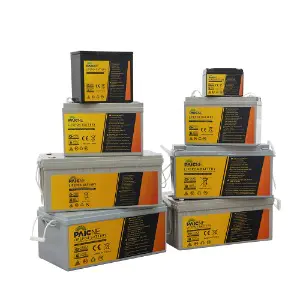Performance in Low-Temperature Environments
At low temperatures—typically below 0°C—the performance of Lithium Iron Phosphate Battery systems begins to degrade. Cold weather slows the movement of lithium ions within the electrolyte and across the electrodes, which significantly reduces the battery’s available capacity and efficiency. Charging in these conditions poses even more risks: lithium plating may occur on the anode surface, causing potential short-circuits and permanent battery damage. As a result, manufacturers often integrate battery management systems (BMS) that restrict charging when the temperature drops below a safe threshold. In real-world usage, such as in cold climates or winter applications, thermal insulation or integrated heating solutions are commonly used to mitigate this performance drop.

High-Temperature Operation and Its Implications
Conversely, in high-temperature environments—generally above 45°C—the Lithium Iron Phosphate Battery exhibits different challenges. Elevated temperatures accelerate chemical reactions inside the cell, which can initially improve power output but at the cost of faster material degradation. Prolonged exposure to heat may result in the breakdown of the electrolyte, increased internal resistance, and potential gas formation, which compromises safety and cycle life. While LiFePO₄ chemistry is more stable and less prone to thermal runaway than other lithium-ion types, proper ventilation and thermal management are still necessary in high-heat applications such as solar storage units or under-hood automotive use.
Mitigation Through Battery Management Systems
Advanced BMS plays a critical role in regulating a Lithium Iron Phosphate Battery's performance across temperature. These systems monitor cell temperature in real time, adjust charge/discharge rates accordingly, and engage protective functions like cut-off or thermal regulation. When paired with smart charging algorithms and thermal insulation or cooling systems, the impact of temperature swings can be significantly reduced. This approach ensures both safety and efficiency even in demanding conditions.
Comparative Advantage Over Other Chemistries
One of the standout advantages of the Lithium Iron Phosphate Battery is its resilience compared to alternatives like nickel manganese cobalt (NMC) or lithium cobalt oxide (LCO) batteries. While its energy density is lower, Lithium Iron Phosphate Battery maintains structural integrity better under thermal stress and is far less susceptible to catastrophic failure modes. In temperature-sensitive applications such as off-grid solar systems, emergency backup power, or outdoor surveillance equipment, this stability often outweighs the need for high energy density.
Real-World Applications in Bad Climates
In practice, Lithium Iron Phosphate Battery systems have proven viable in both Arctic and desert conditions when appropriately engineered. Electric buses in Nordic countries have adopted battery heating systems that allow them to function reliably during sub-zero winters. Similarly, in desert or tropical environments, solar battery storage units equipped with heat dissipation components maintain operational consistency even when ambient temperatures soar above 50°C.
Reliable Performance Through Adaptation
While Lithium Iron Phosphate Battery systems are affected by bad temperatures, they remain one of the stable and safe lithium-based options available today. Their behavior under cold and hot conditions is predictable and manageable through proper system design, thermal management, and intelligent battery control. When these factors are considered, they deliver reliable performance across a wide range of environmental conditions.
Get to know quickly
We are a professional lithium iron phosphate battery, solar energy storage system, industrial and commercial energy storage system manufacturer.
 +86-133 3592 3377
+86-133 3592 3377
 +86-4008833583
+86-4008833583
 Email: [email protected]
Email: [email protected]

Copyright © Zhejiang Paichen Energy Storage Group Co., Ltd All Rights Reserved.
Battery Energy System Manufacturer
